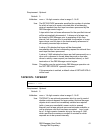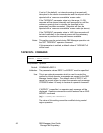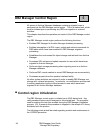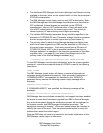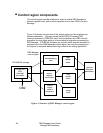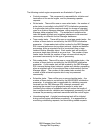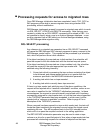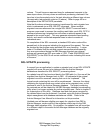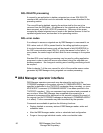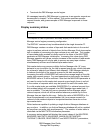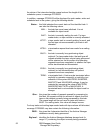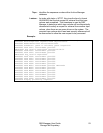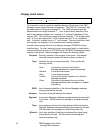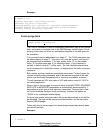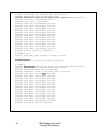DB2 Manager User Guide 49
StorageTek Proprietary
volume. This will improve response times for subsequent requests to the
same tape volume, but may cause an additional processing overhead if the
tape has to be dismounted prior to the task allocating a different tape volume
(as required in task selection criterion (3) above). Refer to page 40 for a
description of the RETAINTAPE parameter.
Note that the above retrieval processing is performed for each migrated row
which is referenced via an SQL SELECT command. Where multiple
migrated rows are referenced via a single SQL SELECT command and a
program cursor used to process the resulting result table, each SQL FETCH
command referencing a migrated row will cause a retrieval request to be
passed to the control region. This may generate substantial tape handling
activity, and result in extended response times in order to access all
referenced rows.
On completion of the SQL command, a standard SQL return code will be
passed back to the program indicating the success of the request. This can
be checked by the program using standard SQL error handling. A return
code of 0 indicates that the retrieval request was performed successfully.
Any error encountered during the DB2 Manager migrated row retrieval
process will generate an SQL error code of –652. Fields SQLERRD(6) and
SQLERRD(7) in the SQLCA will contain additional codes indicating the cause
of the error.
SQL UPDATE processing
A request from an application to update a migrated row (via an SQL UPDATE
request) will cause the row to be retrieved from the Archive Manager
database as described for SQL SELECT processing above.
An updated row will then be stored back in the DB2 table (i.e.) the row will be
migrated from Archive Manager back to DB2. All reference to the original
migrated row will be removed, causing that row to be “orphaned”. The
logical record containing this row will be unreferenced. However, the object
containing the logical record may contain other active migrated rows, so will
continue to exist in the Archive Manager database. The object containing
the restored row will be deleted by the DB2 Manager database housekeeping
utility when it no longer contains any active migrated rows. Refer to chapter 6
for a description of this utility. Database tape and disk space occupied by
the deleted object may be reclaimed, if required, using the Archive Manager
object management and database maintenance utilities. Refer to the
Archive Manager User Manual for information on this procedure.
Updated rows will become eligible once again for migration from DB2 to
Archive Manager, under control of the migration criteria input to the DB2
Manager table migration utility. On migration, the updated row will be written
to a different object in the same Archive Manager database as the originally
migrated row.



